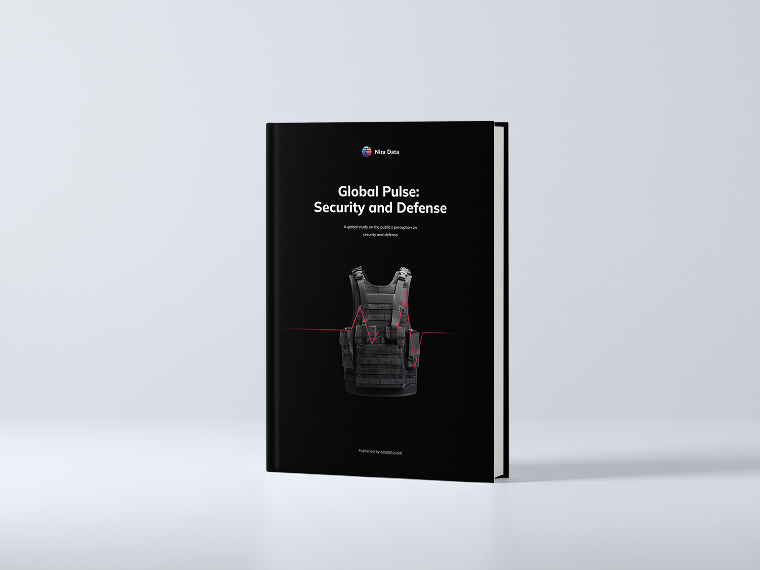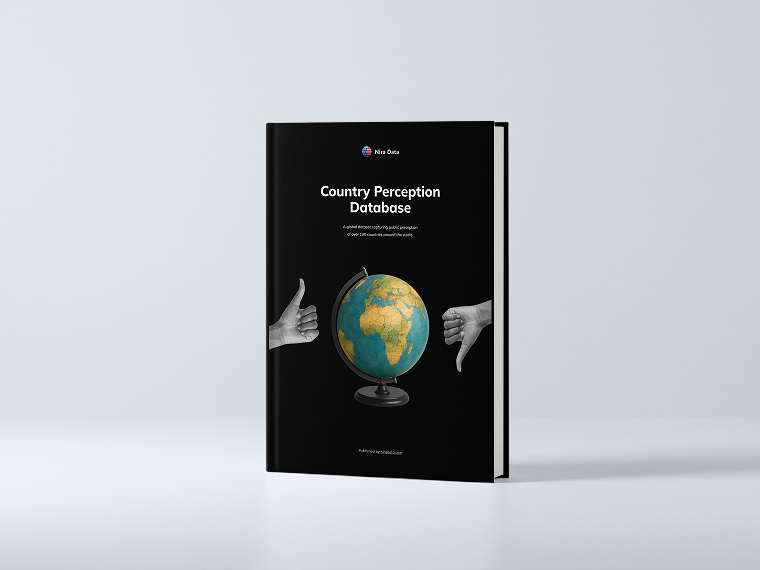Global Pulse: Security & Defense
Largest global opinion study on public perception of security and defense in a changing world
Why this report matters
In an era of rising geopolitical instability, military rearmament, and contested global norms, understanding public attitudes toward national defense and international security has never been more critical. The Global Pulse: Security & Defense study provides unprecedented insight into how citizens across the world view threats to their national sovereignty—and what they expect their governments to do about it.
With responses from over one hundred thousand people across more than 100 countries, this timely and data-rich report explores the global support for defense spending, military engagement, international cooperation, and strategic deterrence. It sheds light on the difficult trade-offs between national security, civil liberties, and fiscal priorities—and how far the public is willing to go in defense of their country.
What’s inside
- Public sentiment on international law and sovereignty: Understand where populations stand on the balance between following international rules and retaining national autonomy—vital for diplomacy and foreign policy.
- Perceived threat landscape: Discover how concerned people are about potential military conflict, both globally and at home, with breakdowns by region, age, and other key demographics.
- Defense spending priorities: Examine global support for higher defense budgets—even at the cost of taxes or social services—revealing insights into public risk tolerance and strategic preferences.
- Willingness to defend the homeland: Measure how many citizens would personally take up arms to defend their country in the event of an attack, including variations across culture, gender, and political orientation.
- Policy preferences for national defense: Explore what types of security strategies the public prefers—from alliances and international cooperation to nuclear deterrence, conscription, and military expansion.
Who this is for
This report is essential for:
- Defense ministries, security advisors, and military strategists evaluating public alignment with national policy
- International relations scholars and geopolitical analysts tracking trends in defense perception
- Policy makers and legislators weighing public opinion on controversial military investments
- Think tanks, journalists, and civil society groups examining democratic consent for war and peace
- Advocacy groups exploring public support for arms control, diplomacy, or national service initiatives
What makes it unique
- Global coverage: Data collected from over 100 countries, with deep demographic segmentation
- Crisis-relevant: Designed to inform urgent questions around security readiness and civilian attitudes
Actionable insight: Quantifies public opinion on defense policies, enabling strategic decision-making across government and academia
Buy main report and single country deep-dive
EUR 90.00 per report
Buy main report and all 100 country deep dives
Global Pulse: Security & Defense
EUR 1,900.00





